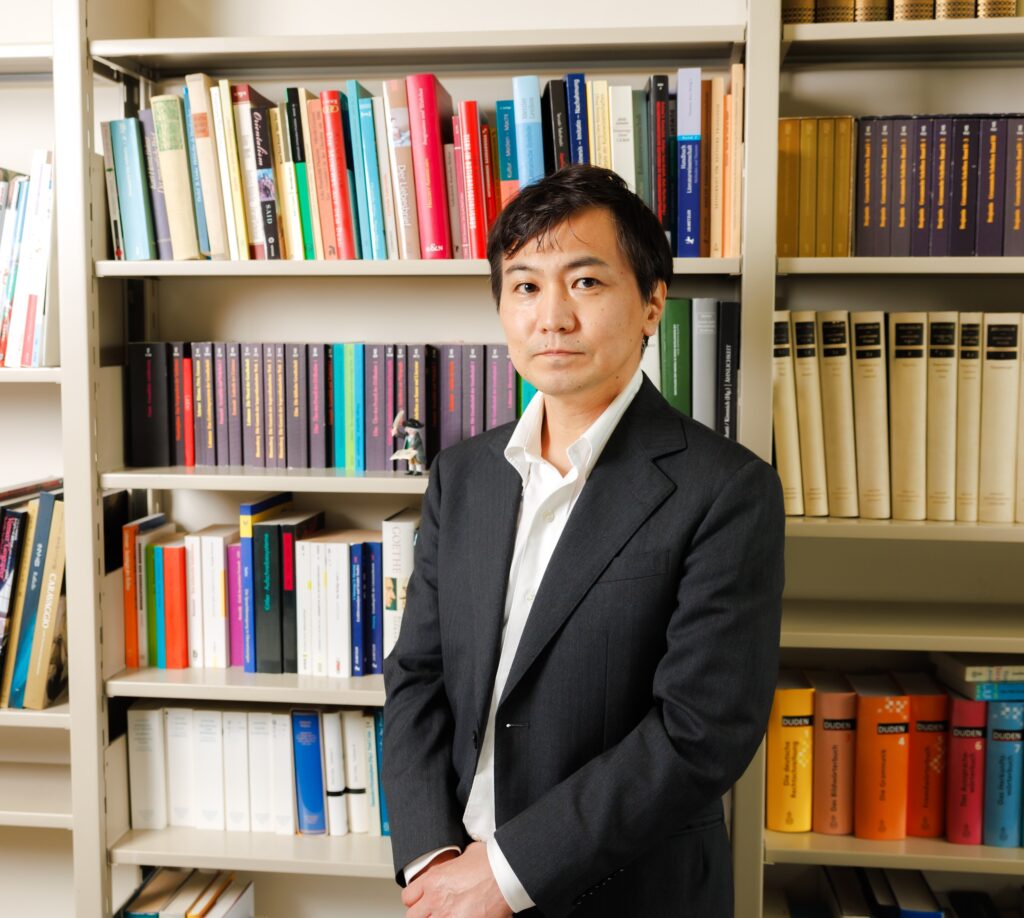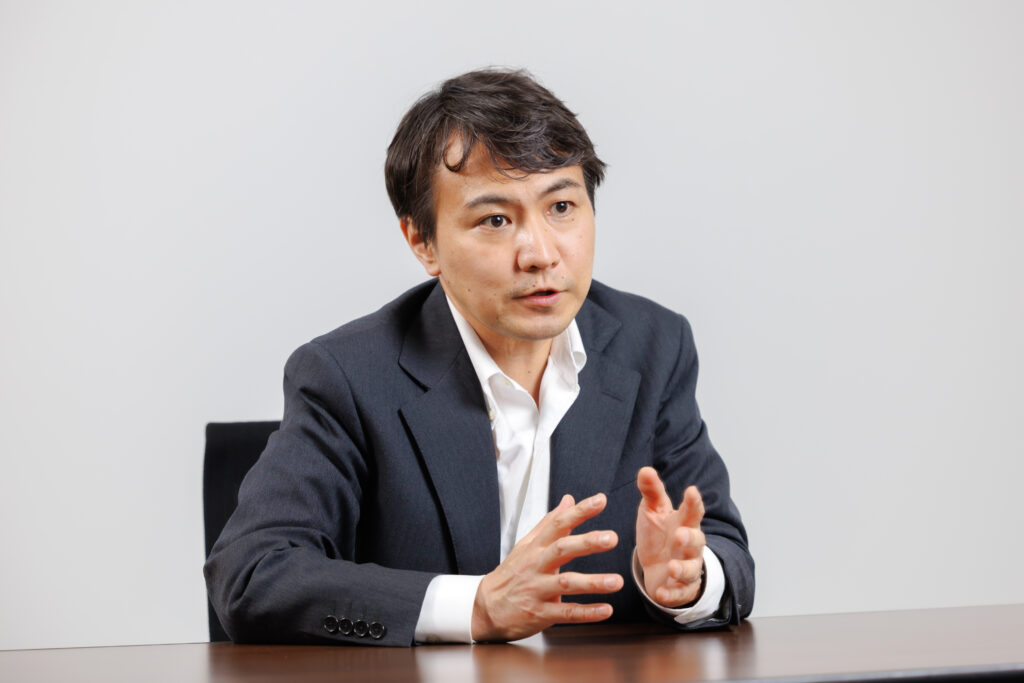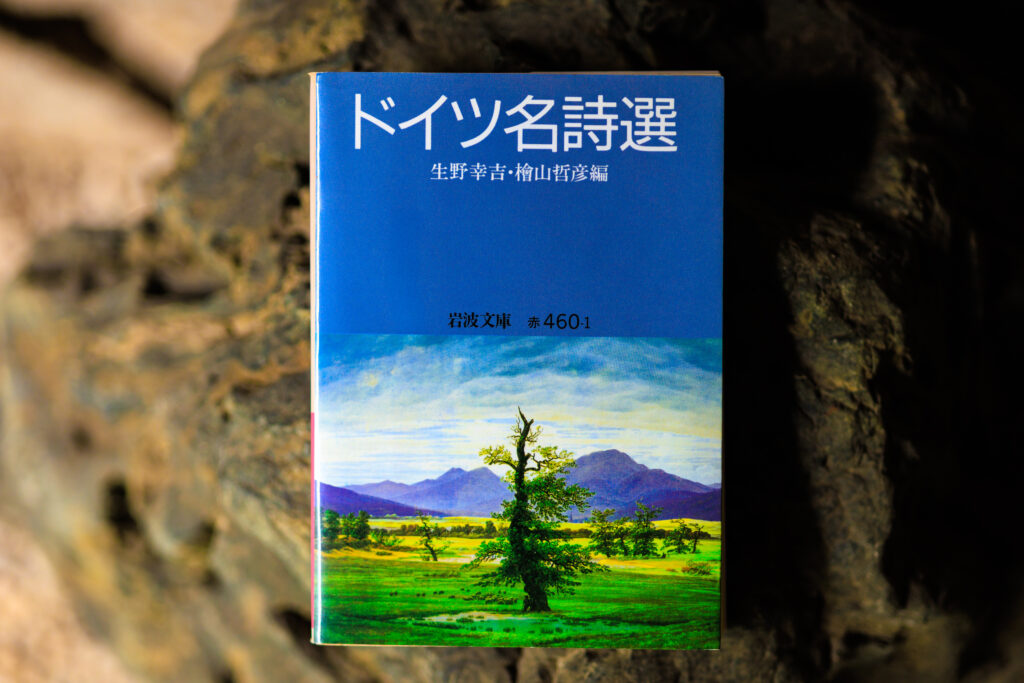
Professor Koji Ota from the Faculty of Humanities studies the 18th century German poet Johann Christian Friedrich Hölderlin. He talks about the place that poems have in Germany, their messages for modern society and the future, and the reason why he wants young Japanese people to be acquainted with Hölderlin’s poems.
I study the works of the 18th century German poet Johann Christian Friedrich Hölderlin. Born in 1770 as the son of a steward of a monastery, Hölderlin studied philosophy as a theology student at university. After graduation, instead of undertaking religious work, he wrote poems while working as a home tutor in various places.
It was common at that time in Germany for writers to criticize society or depict ideal worlds through their poems, novels, and other works. Besides being literary people, they were simultaneously thinkers and philosophers. In Germany today, poetry recitals are often held in towns, and the general public comes into contact regularly with the messages of writers.
Through his poems, Hölderlin expressed a vision for a future society where humans are bound to God and to each other tightly by love, even as independent people retain their freedom, and the diversity of individuals is respected. Entering the 20th century, his poems gained recognition, and today, he is one of the most famous poets from Germany, on par with others like Johann Wolfgang von Goethe.
Hölderlin’s poems offer hints for creating a new Japan

Hölderlin’s name is also well known in Japan, and there have been several Japanese translations of his poems. However, his poems are not widely read and I believe this is because they are difficult to understand and the meaning is hard to decipher. I would like to make these poems more accessible to Japanese readers, especially to young people, and work with fellow researchers of German poetry to include notes that aid understanding, and translate the works into modern Japanese.
I have two reasons for wanting more young people to know about Hölderlin’s poems. One reason is that today, many issues are occurring on a global scale: wars, conflicts, environmental issues, to name but a few. Through his poems, young people may be able to find hints for creating a new Japan.
The other reason is that I hope to let today’s young creators learn about Hölderlin’s poetry format known as harte Fügung (literally, harsh connection), which they may find fresh and stimulating. In 2023, I gave a lecture to a general audience about this format for the first time and felt a certain level of response.
As Japanese researchers, German is not our mother tongue, and it is no simple task for us to interpret Hölderlin’s poems. However, by using 18th century German dictionaries and such to carefully look up the meanings of words, I think we can offer new interpretations that were not noticed by researchers who are native speakers of German.
Hoping people will choose German as a second foreign language
For my future research, I hope to look at Hölderlin’s handwritten manuscripts as much as possible and focus on using them to understand the multiple layers of his works. Many of his poems which are seen as important were not published and instead left behind as handwritten manuscripts, and to translate his works, the translator needs to recreate the text generation process from the complex writings on these manuscripts.
I really hope high school and university students will come to know the German language and the charms of German poetry. I became interested in German poetry because I chose German as a second foreign language for classes in university. I was drawn by the harsh beauty of German, which is different from French and Italian, and before I knew it, I had plunged deep into the world of German language and literature.
There are also many German poems that were made into songs, and there are many students who came to the German language via music. For students here, the first foreign language is set as English, but they have a wide selection of languages to choose from for their second foreign language subject. With some creativity, I believe people can enjoy learning German.
The book I recommend
“Doitsu Meishisen”(Collection of Famous German Poems)
compiled by Kokichi Shono and Tetsuhiko Hiyama, Iwanami Shoten

This book introduced me to the world of German poetry. It contains 82 pieces by 38 famous German poets spanning back to the 18th century, including Hölderlin. With both the original German text and its Japanese translation, it is easy to read for people learning the German language.
-
Koji Ota
- Professor
Department of German Literature
Faculty of Humanities
- Professor
-
Graduated from the German Literature course of the School of Letters, Arts and Sciences I, Waseda University, and completed the doctoral program of German Literature at the Graduate School of Arts, Rikkyo University before going on to receive his Dr. phil. at Justus Liebig University Giessen in Germany. Took on several positions—such as assistant professor at the College of Arts, Rikkyo University and associate professor at the Faculty of Language Studies, Teikyo University—before assuming his current position in 2024.
- Department of German Literature
Interviewed: May 2024